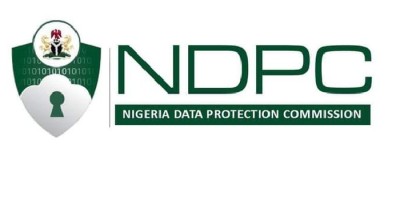Highlights of the 60-Day National Action Plan on Ease of Doing Business in Nigeria
Posted on Sun 26 Mar 2017
- Download Resource
BACKGROUND
For many years, Nigeria has fared poorly in the global rankings for both ease of doing business and economic competitiveness. The Word Bank in its Doing Business 2017 Report ranked Nigeria 169th out of 190 countries[1] while the country was similarly, poorly placed in the 127th position among 138 economies covered in The Global Competitiveness Report 2016–2017 by the World Economic Forum[2]. These unfavorable business and economic indices have greatly affected the country’s capacity to attract sufficient investments from both domestic and foreign investors and consequently retarded national productivity and economic development. In light of the fall in crude oil prices and the Nigerian government’s current drive to diversify the economy through development of non-oil related sectors such as agriculture and mining, it has become imperative for Nigeria to create an enabling environment for doing business.
As part of efforts to reform the business climate in Nigeria and pull the country out of the current economic recession, the Federal Government (“FG”) established in July 2016 the Presidential Enabling Business Environment Council (“PEBEC”), chaired by the Vice President, His Excellency, Mr. Yemi Osinbajo, SAN, with the Minister of Industry, Trade and Investment, Dr. Okechukwu Enelamah as Vice Chairman. PEBEC is composed of nine (9) other Ministers, the Head of Civil Service of the Federation, the Governor of the Central Bank of Nigeria (“CBN”) and representatives from the National Assembly and the private sector. Further to the establishment of the PEBEC, the Enabling Business Environment Secretariat (“EBES”) was set up in October 2016 with the mandate to implement the reform agenda of PEBEC, which centers on the removal of critical bottlenecks and bureaucratic constraints to doing business in Nigeria and by so doing; “move Nigeria 20 steps upwards in the World Bank Ease of Doing Business Index” which would be published by the World Bank later this year. This newsletter highlights the reforms being driven by the various stakeholders with the support of PEBEC and EBES; as well as some of the successes that have so far been recorded during the 60 days implementation timeframe.
THE 60–DAY NATIONAL ACTION PLAN
On February 21, 2017, PEBEC approved a 60-Day National Action Plan on Ease of Doing Business in Nigeria (“National Action Plan”). The National Action Plan, which is an inter-ministerial, inter-governmental plan, is being driven by EBES for implementation by various Ministries, Departments and Agencies of government (“MDAs”). The key stakeholders who are collaborating on this initiative and have clear deliverables include the National Assembly, the Governments of Lagos and Kano States, and the private sector. The National Action Plan has now entered into its 30th day of implementation and focuses on the following eight (8) areas[3] as the “Strategy” for achieving results:
________________________
[1] See the “Doing Business 2017” Report, International Bank for Reconstruction and Development / The World Bank, at page 7 – http://www.doingbusiness.org/~/media/WBG/DoingBusiness/Documents/Annual-Reports/English/DB17-Report.pdf
[2] See “The Global Competitiveness Report 2016–2017”, World Economic Forum, September 2016, at pages 44-45 –http://www3.weforum.org/docs/GCR2016-2017/05FullReport/TheGlobalCompetitivenessReport2016-2017_FINAL.pdf
[3] The eight (8) areas form part of the indicators included in the World Bank’s measurement of the Ease of Doing Business Index. See pages 1 & 2 of the “Doing Business 2017” Report, ibid at footnote 1.













